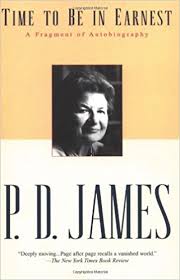Last weekend I took my kids to a record store. This is one of those rare dinosaurs that sells actual records, the waxy vinyl kind. My daughter had wanted a record player for Christmas, along with a few records. These are records by modern artists, some of them born after vinyl supposedly died and CDs took over, only to be superseded by digital tracks and now streaming. I own a few vinyl items, most of them bought over 30 years ago, and all transported across the Atlantic when moved from Norway to the US. I think some of them might even have been bought in Paris back in 1985 while on a school trip. They all remain in pristine condition.
This isn’t to say I haven’t been in a record store in the intervening years. There was Tower Records during college in the 1990s, though I think by then they had converted to CDs, and so the “records” in the name of the store really was misleading. Anyway, Tower Records failed a few years ago, brought down by the digital revolution. The other music stores I frequented are either gone (CD Exchange in Austin, Borders – also in Austin – a CD store in San Antonio that lasted one or two years before it folded), or are getting rid of physical music.
Now, it seems, vinyl is on the rebound. Is this a temporary fad, brought about by a spasm of nostalgia in the cultural mode? Or, will it last and see a resurgence beyond a handful of vintage locations? While vinyl remains a small percentage of the overall music purchases, it carries on, and we may even see the return of record stores in the US. In fact, that may be the only record store I’d visited in the States, and it wasn’t even a record store. I did end up with some vinyl a few years ago, when I supported a Kickstarter for the band, Stripmall Architecture, and ended up with a white vinyl copy of their record. I also have a 7″ single from the tribute album to The Smiths, but that’s about it in the last 30 years.
This record store, however, is not recent. It’s been around a few decades. I’d read about it, but in the nearly two decades I’ve lived in this town have never visited. Since my daughter expressed an interest in records, I thought to myself, why not, and so dragged them over there Saturday afternoon. It’s only a 12-minute drive, though made longer by a slow-moving postal truck that trundled along a road until finally turning into the nearby post office. The outside is inconspicuous; no one would know it was a record store. A few cars stood parked outside the building, so obviously some business was being transacted inside. People still were buying records!
Inside, a handful of people – all males – stood in front of displays of various albums. The lighting was harsh, and I got the strange impression this was one of those old-time adult book stores, but instead of certain magazines the people here perused album covers. My two kids were quite confused by the layout. Knowing my daughter’s interest might prompt her to find some records, I asked her which bands she liked, and pointed her in the right direction. The other child stayed close to me, not sure how to find anything. The records themselves were packed tightly into the bins, making it almost impossible to flip through them to read the artist and title. Space in this store was at a premium, but surely they could make it looser between the albums?
Since I wasn’t there not just on my behalf I browsed quickly, in case boredom struck and caused mutiny among the younger generation. I ended up picking out two albums – the new one by The National, in a limited “blue vinyl” release, and one by Midlake, called Antiphon. Being somewhat used to digital album prices it shocked me to pay more than twice and almost three times the cost of a digital album for something so seemingly fragile. But, like an over-priced souvenir I considered it palatable for the moment. Walking out with my two LPs and my daughters two LPs I was impressed by the weight of so much vinyl. It just seemed solid, far more so than CDs.
These days vinyl comes with coupons for digital downloads. I went for The National download first, and after entering my code in the record store web site was presented with two options: flac and mp3. I had never heard of flac, but a quick search indicated compression was better than mp3 in the sense it was lossless, and I picked flac. However, I then learned that iTunes doesn’t play flac, so I had to sheepishly return to the website and download the mp3 files. I’m not sure what to do with my flac files, at least not yet.
Next, I turned to Antiphon, by Midlake. Whereas the other album was released in 2017, Antiphon came out in 2013. Five years in the digital-vinyl age is a vast chasm of time. When I plugged in the code on the website for www.atorecords.com, I was informed that the files no longer exist in that folder, and please fill out this form. I duly filled out the form, included my email address, and by now feel quite duped, in the sense that not a single soul behind that web site will ever read my email, or if they read it, will respond with an alternate option. These days if you don’t redeem your coupon swiftly enough the digital files simply disappear into the ether, or cloud, or whatever.
I think if I buy another vinyl record it will be only for recently released records, so that I may enjoy the music on the turntable as well on the road, plugged into my fragile and soon to be obsolete musical delivery device. Also, if I keep buying more vinyl I will need to upgrade my record player. It’s seen better days, a relic of a bygone age.
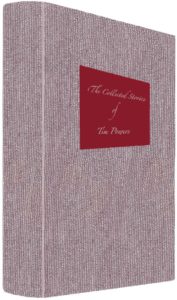
 The big news today is that
The big news today is that  I’ve long considered’s British band Slowdive’s 1993 album Souvlaki one of the best sounds of the 1990s, with Dagger, 40 Days, Allison, Machine Gun, and When the Sun Hits five memorable tracks with a unique sound. Yet the British music press can be brutal, raising up bands one moment only to tear them down the next. The arrival of Britpop and grunge in the mid-90s doomed Slowdive, while the press fawned over bands like Blur, Oasis and Nirvana.
I’ve long considered’s British band Slowdive’s 1993 album Souvlaki one of the best sounds of the 1990s, with Dagger, 40 Days, Allison, Machine Gun, and When the Sun Hits five memorable tracks with a unique sound. Yet the British music press can be brutal, raising up bands one moment only to tear them down the next. The arrival of Britpop and grunge in the mid-90s doomed Slowdive, while the press fawned over bands like Blur, Oasis and Nirvana.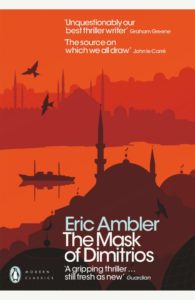
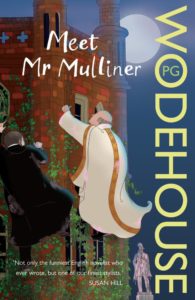
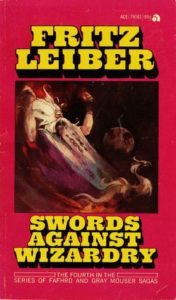 Twenty or so years ago I bought my first Fritz Leiber book. It might have been The Swords of Lankhmar or one of the other books in the Fafhrd and Gray Mouser series. Back in the late 1980s, early 1990s you could still find the old Ace paperbacks in good condition in used book stores. If you were lucky.
Twenty or so years ago I bought my first Fritz Leiber book. It might have been The Swords of Lankhmar or one of the other books in the Fafhrd and Gray Mouser series. Back in the late 1980s, early 1990s you could still find the old Ace paperbacks in good condition in used book stores. If you were lucky.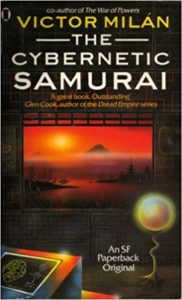 Victor Milán died on February 13. I learned the news one day later, and found it nearly impossible to believe. I’d known Vic for nearly two decades, mostly via email, though we met a few times in person in the mid-1990s when I attended some SF conventions. He wrote an article once for Prometheus back when I used to edit the newsletter, and we discussed books and other subjects when we corresponded. We were both huge fans of Lack Vance, a topic that came up several times. He was alway writing, and publishing great books, all entertaining stories across many genres. I’ve read only a fraction of his books, mainly ones that were published under his own name, not his many pseudonyms. Looking at my stack of his books I’m surprised to find that I own only ten, even though in all he wrote close to 100 novels.
Victor Milán died on February 13. I learned the news one day later, and found it nearly impossible to believe. I’d known Vic for nearly two decades, mostly via email, though we met a few times in person in the mid-1990s when I attended some SF conventions. He wrote an article once for Prometheus back when I used to edit the newsletter, and we discussed books and other subjects when we corresponded. We were both huge fans of Lack Vance, a topic that came up several times. He was alway writing, and publishing great books, all entertaining stories across many genres. I’ve read only a fraction of his books, mainly ones that were published under his own name, not his many pseudonyms. Looking at my stack of his books I’m surprised to find that I own only ten, even though in all he wrote close to 100 novels.